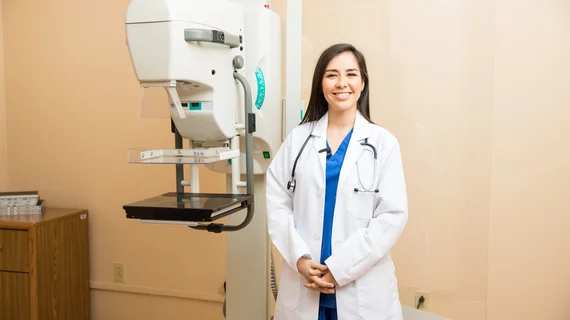GE Healthcare, Premier partner to develop one-stop, same-day breast imaging center
GE Healthcare is teaming up with Premier Inc. to create America’s first one-stop breast cancer diagnostic center, where women can receive their imaging results the same day as testing.
Such a model has already been popularized in France, where patients can receive their diagnosis and treatment plan all in the same place, on the same day. Opened in 2004, the Gustave Roussy Institute has been a hit with patients, scoring an 80% satisfaction rating while decreasing patient anxiety and improving diagnostic accuracy.
Premier—a Charlotte, North Carolina-based health care improvement firm—has already analyzed evidence on the model’s feasibility in the U.S. The two companies said they are now convening an advisory board of experts to further explore adopting a one-stop shop in the states.
“We’ve seen the benefit of taking a personalized approach to breast care that includes different modalities and a multidisciplinary team to ensure we get answers to our patients as quickly as possible,” advisory board member Joseph Russo, MD, section chief of women's imaging at St. Luke's University Health Network, said in a statement. “The one-stop clinic takes this a step further to offer proven same-day results that are incredibly impactful for patients and clinicians.”
Since it opened, the Gustave Roussy Institute has treated more than 20,000 women, with about 75% leaving with a diagnosis their first day. The clinic deploys advanced diagnostic technology and a multidisciplinary team that includes radiologists, a breast surgeon, oncologist and imaging technician, all under one roof.

